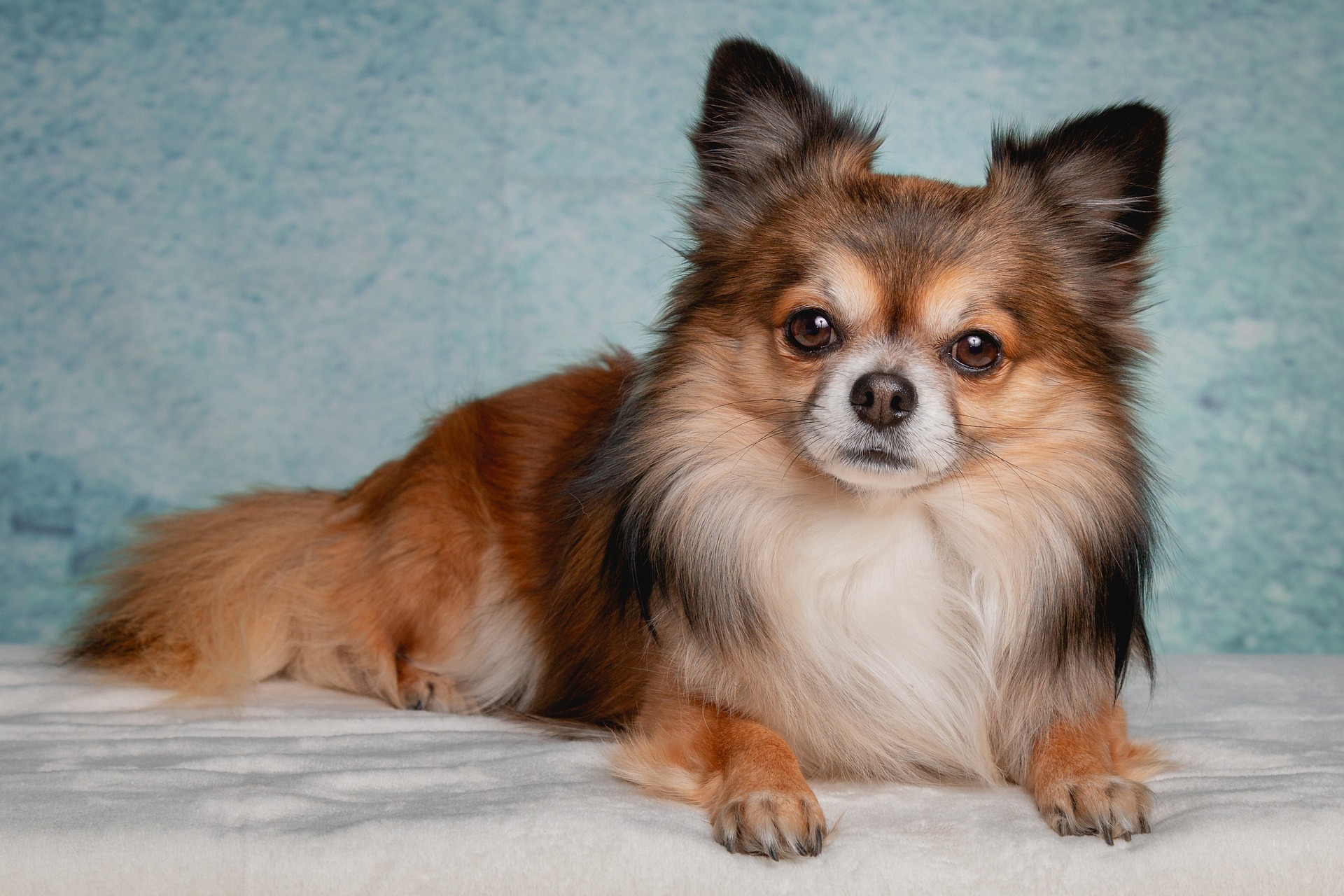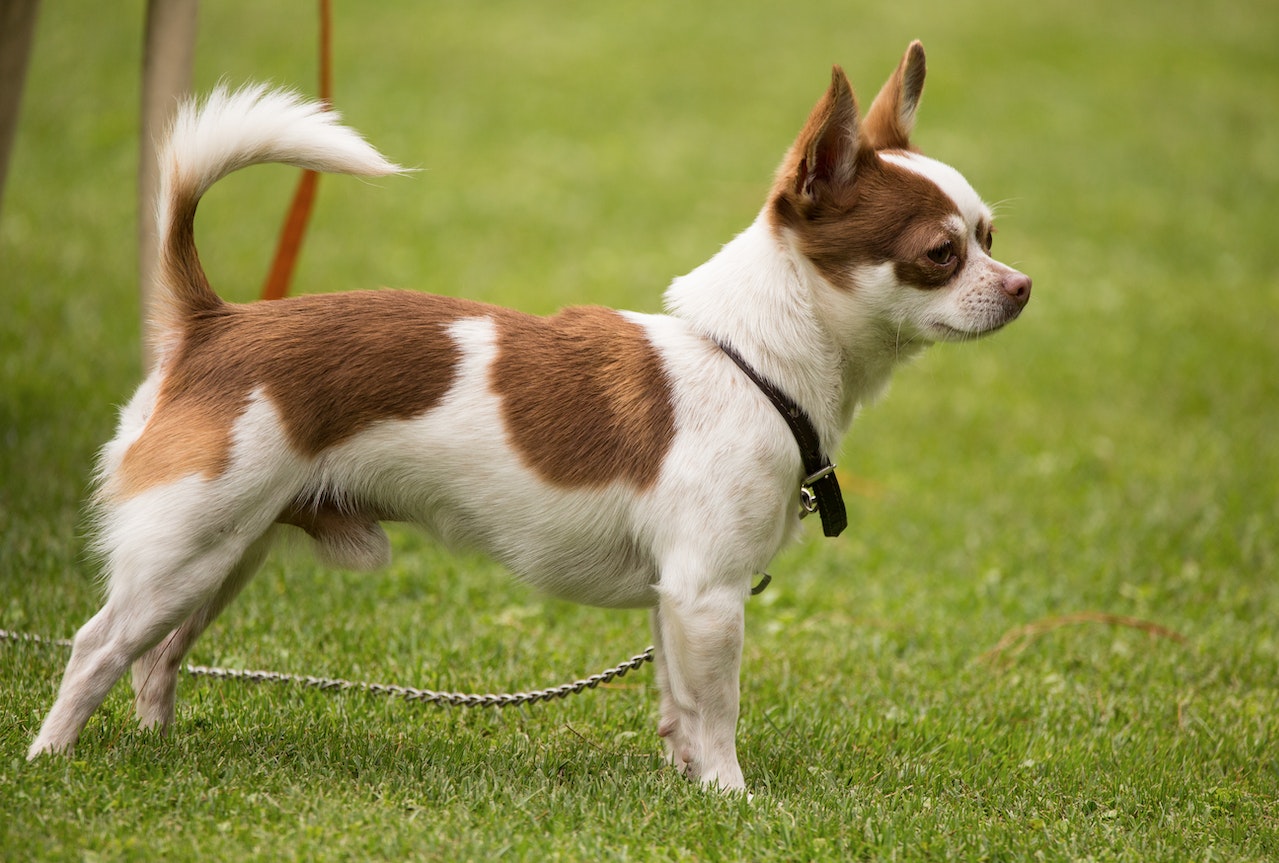If you recently welcomed a Chihuahua puppy into your home, you may wonder how often they need to eat. From a pup’s physical development needs to their nutritional and behavioral requirements, there is a lot to consider when feeding your growing Chihuahua. Continue reading to know more about feeding your pup for optimal health and well-being.
The Importance of Proper Feeding for Chihuahua Puppies
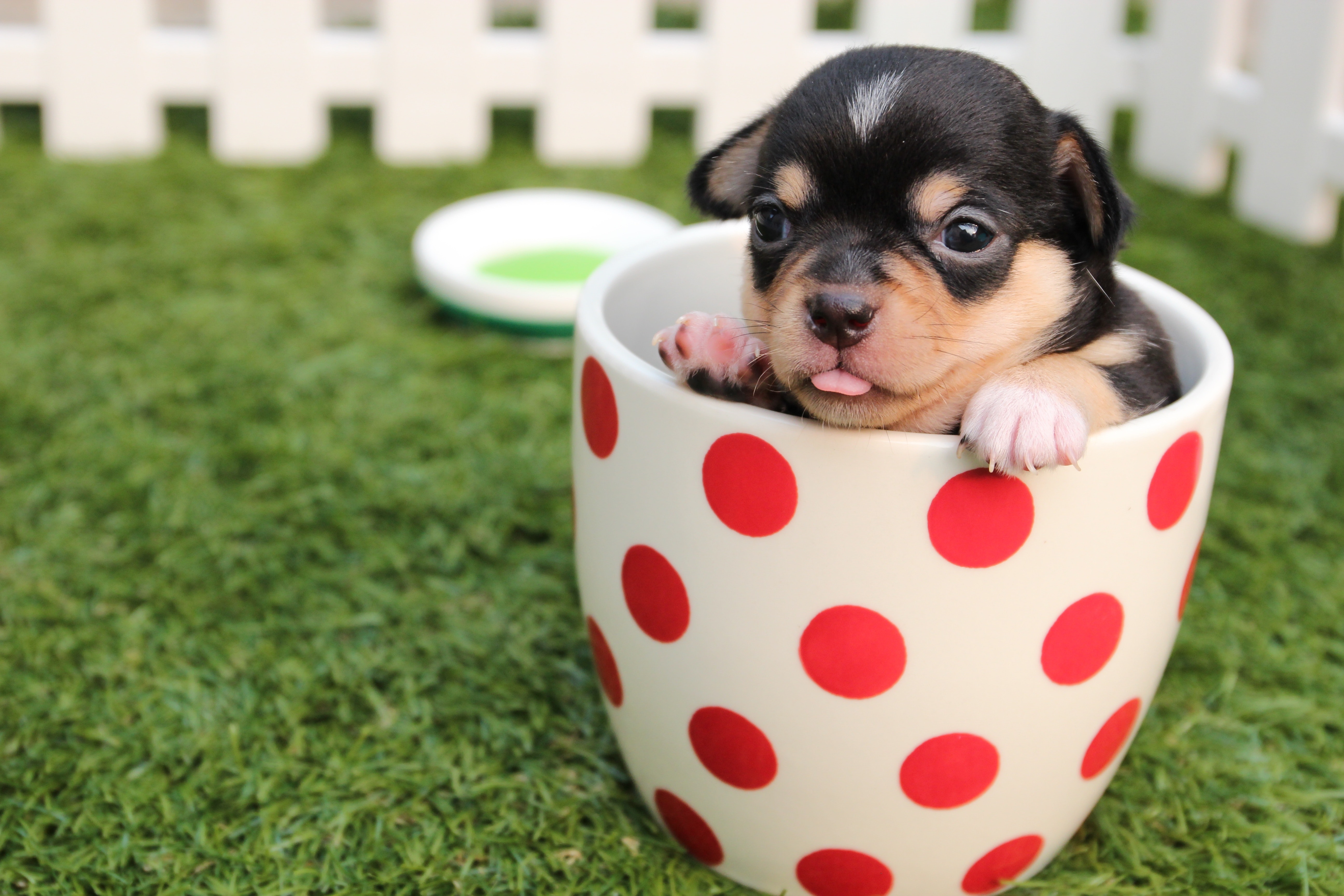
Proper feeding for Chihuahua puppies is of great importance for their physical growth and development, and socialization. Adequate nutrition helps them grow into healthy adults, and the right food choices can help nurture their developing brains.
➨Physical Health
Feeding a meal high in nutrients and suitable for its age will help ensure your puppy gets all the building blocks it needs for strong bones and muscles. This is especially critical during their first year, as improper nutrition may impair growth or even lead to bone and joint problems later in life.
➨Mental Health
Proper feeding directly impacts Chihuahua puppies’ mental health, as poor nutrition can hinder their growth and negatively affect their behavior. The nutrients from a healthy, well-rounded diet are essential for brain development and promote positive emotions. It can help prevent behavioral problems that may arise from hunger or malnutrition, such as anxiety, fear, and aggression.
Understanding Chihuahua Puppies Nutritional Requirements

Understanding the nutritional requirements of Chihuahua puppies is key to their physical and mental health. As they’re still growing, they require special attention when it comes to food. Feeding them the right amount of meals per day is vital as overfeeding can lead to obesity, while underfeeding can cause poor nutrition. A better understanding of your puppy’s needs can help you supply the optimum nourishment.
🐶Energy Requirements
Chihuahua puppies have different nutritional energy requirements than adult Chihuahuas or other breeds due to their smaller size, rapid growth, and higher metabolism. They require 25-30 kilocalories per pound (45-68 kcal/kg) to satisfy their daily caloric needs. To calculate the amount of food your pup requires, you can use an online calorie calculator according to their age, weight, and activity level.
🐶Protein Requirements
Protein is an essential nutrient for Chihuahua puppies, as it helps support their growth and development, promotes muscle and tissue repair, and provides energy. A puppy should get 18-22 percent of its calories from protein sources, but some experts recommend even higher levels for optimal growth and development. Choose a high-quality protein source for your Chihuahua puppy, such as meat, poultry, fish, or eggs. These animal-based protein sources include all the amino acids required by your puppy to thrive. Plant-based protein sources, such as soy or legumes, can also be included in a puppy’s diet, but they may not provide all of the essential amino acids in the right amounts, so it’s important to feed a balanced diet that includes a variety of protein sources.
🐶Carbohydrates Requirements
The most important role of carbohydrates in a puppy’s diet is to provide energy. The chihuahua body converts carbs into glucose to give power and stores the surplus as glycogen in the liver and muscles. Experts recommend that 40-60% of a puppy’s diet consists of carbohydrates, based on their individual needs and energy requirements. Though carbs provide the body with energy, ensure that your puppy gets complex carbs instead of simple sugars. Complex carbohydrates such as whole grains digest slowly, supplying a consistent energy source throughout the day. Limit their intake of simple sugars as these can cause rapid rises in blood sugar levels and may contribute to obesity and other health problems.
🐶Fat Requirements
Fats are essential in a Chihuahua’s diet, as they help provide energy and help to absorb fat-soluble vitamins like A, D, E, and K. In addition, fat also helps to maintain healthy skin and coat, and it is essential for proper brain and nerve development. Chihuahua puppies’ diets should include at least 8-10% fat, primarily from high-quality, animal-based sources such as chicken fat or fish oil. Keep in mind that fats vary in type. Avoid feeding your Chihuahua puppy any foods high in trans fats or saturated fats, as they might harm a Chihuahua puppy’s health. Instead, focus on providing healthy sources of unsaturated fats.
🐶Vitamins and Minerals Requirements
Chihuahuas need the right amount of vitamins and minerals to stay strong and healthy. To ensure that Chihuahua puppies acquire all the necessary nutrients, feed them a balanced and healthy diet that includes key vitamins and minerals. Here are some essential vitamins and minerals for Chihuahua puppies:
- Vitamin A: This essential vitamin helps maintain healthy skin, hair, and eyes and supports the immune system.
- Vitamin B complex: This group of vitamins helps the puppy’s body convert food into energy, promotes healthy skin, and helps maintain a healthy nervous system.
- Vitamin C: Promotes collagen production, which is crucial for developing strong bones, coats, and joints.
- Vitamin E: Reduces the risk of cell damage and boosts the immune system.
- Calcium: For healthy teeth and bones. A deficiency of calcium can cause rickets, a disorder in which the bones grow weak and deformed.
- Iron: Iron helps to transport oxygen in the blood and is necessary for healthy red blood cells.
- Phosphorus: With calcium’s help, phosphorus promotes healthy bone and tooth development.
- Zinc: This is important for skin and coat health, wound healing, and the immune system.
- Magnesium: This is necessary for proper muscle and nerve function.
Factors That Affect the Feeding Frequency of Chihuahua Puppies
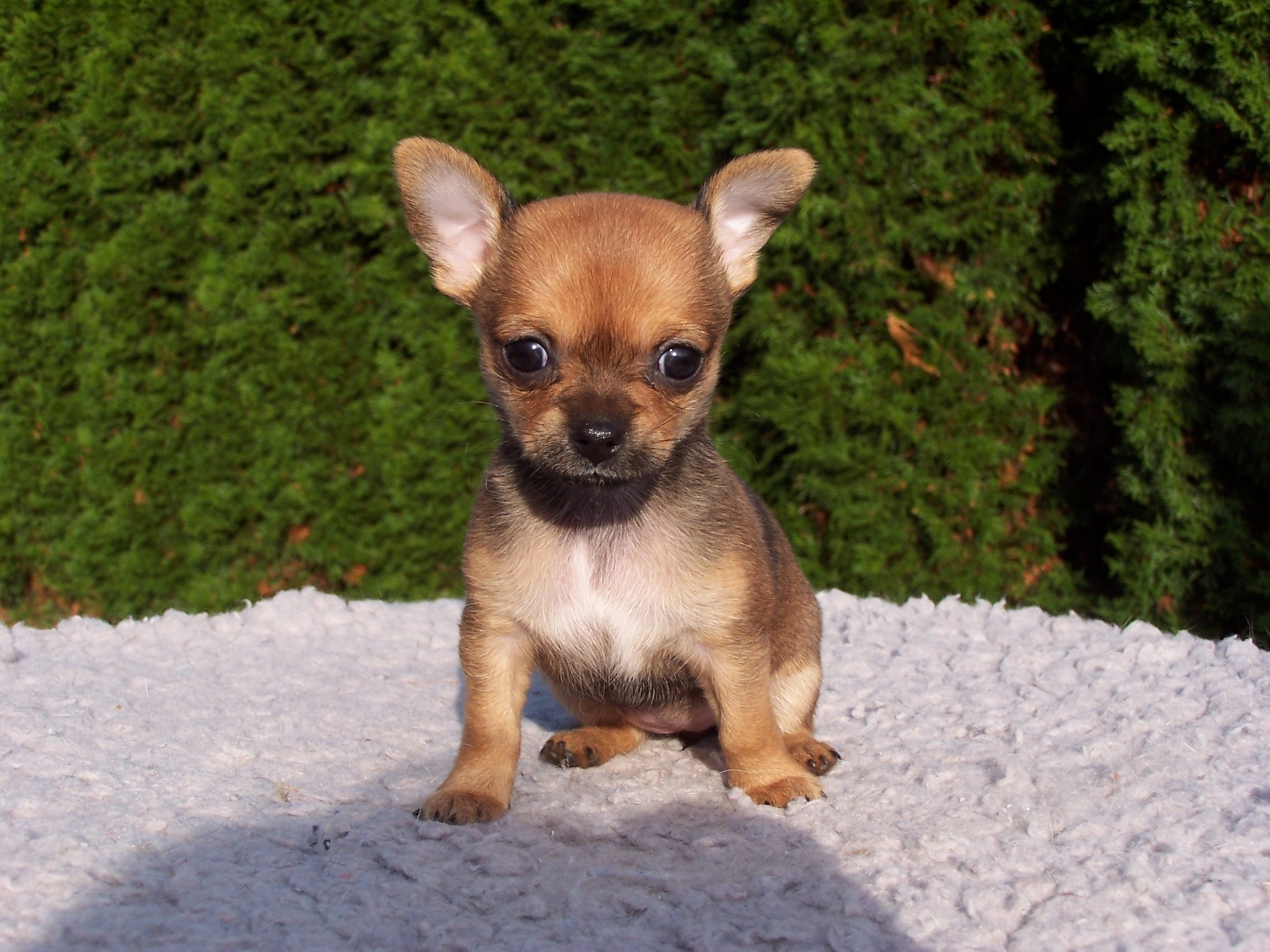
While all pets require a balanced diet and regular feeding, different breeds have different needs when it comes to nutrition. As such, determining how frequently and what type of food to feed your Chihuahua puppy might be difficult. Consider these factors to determine how often your puppy needs to eat.
🐾Age
The age of your puppy is the first factor to consider when determining its feeding frequency. Young puppies (up to 4 months old) need to eat four times a day because their metabolism is very fast at this stage. As they age, you can limit the number of meals they receive each day until they reach adulthood (at about 6 months old). At this stage, your chihuahua puppy should eat two meals daily.
🐾Size
The size of your puppy also affects how often it needs to eat. Smaller pups will naturally have smaller stomachs, so they mustn’t overeat and become overweight or obese. It’s best to stick with two meals per day for smaller dogs until they reach adulthood at 6 months old. However, larger pups may need three meals daily until they reach maturity at around 8-12 months old.
🐾Activity Level
Your pup’s activity level is also essential when determining its feeding frequency. If your pup is very active throughout the day (for example, if it spends time playing at the dog park), it may need additional energy from another meal during the day or even some snacks throughout its active hours. On the other hand, if your pup is less active, then fewer meals per day may be appropriate for it – but only after discussing this with your vet first!
🐾Health Conditions
Health conditions can affect feeding frequency because they impact a pet’s ability to digest food and metabolize nutrients. For example, Chihuahua pups with digestive problems such as vomiting, diarrhea, or inflammatory bowel disease may require smaller, more frequent meals to help them manage their symptoms and prevent further digestive distress. Similarly, overweight or obese puppies may need to eat smaller, more frequent meals to help control their caloric intake and lose weight. In these cases, a veterinarian can provide specific recommendations for feeding frequency, portion size, and type of food to support the pet’s health and manage their symptoms.
How Often Should Chihuahua Puppies Eat?
Feeding a Chihuahua puppy can be tricky, and understanding how often to do it is key. The amount of nutrition you should give your Chihuahua pup depends on their age and activity level, but it’s typically between two and four meals a day for puppies. As they age, reduce their meals to two as adults.
🐕First 4 Months
During the first 4 months of a Chihuahua puppy’s life, feeding them three to four times per day is recommended. This frequency is necessary to support their fast growth and development. Feeding small, frequent meals helps to maintain stable blood sugar levels, provides the puppy with adequate energy and nutrients, and reduces the risk of developing digestive issues.
🐕4-6 Months
At age 4-6 months of their life, Chihuahua puppies are in a critical stage of growth and development, so their feeding frequency and amount of food per day need to be adjusted accordingly. At this stage, they will likely need to be fed three times a day, with meals consisting of high-quality puppy food. Adjust the portion sizes of their meals based on their individual needs and weight, but Chihuahua puppies should typically receive 1-2 cups of food per day, split between three meals.
🐕6-12 Months
Chihuahua puppies will continue to grow and develop rapidly during the 6-12 months of their life. They will require more food to support their growing bodies during this stage. However, the feeding frequency will begin to decrease as they reach maturity. Chihuahua puppies at this stage are usually fed two to three times per day. Keep track of their weight and modify their food intake accordingly. Overfeeding at this stage can result in obesity and serious health effects.
🐕12+ Months
Once a Chihuahua puppy reaches 12 months of age, it is considered an adult and will have reached its full size. At this stage, they can be fed once or twice a day, depending on the dog’s metabolism and activity level. Adult Chihuahuas have a smaller stomach capacity than larger breeds, so providing them with smaller, more frequent meals may be more appropriate.
What To Feed Chihuahua Puppies for Optimal Health
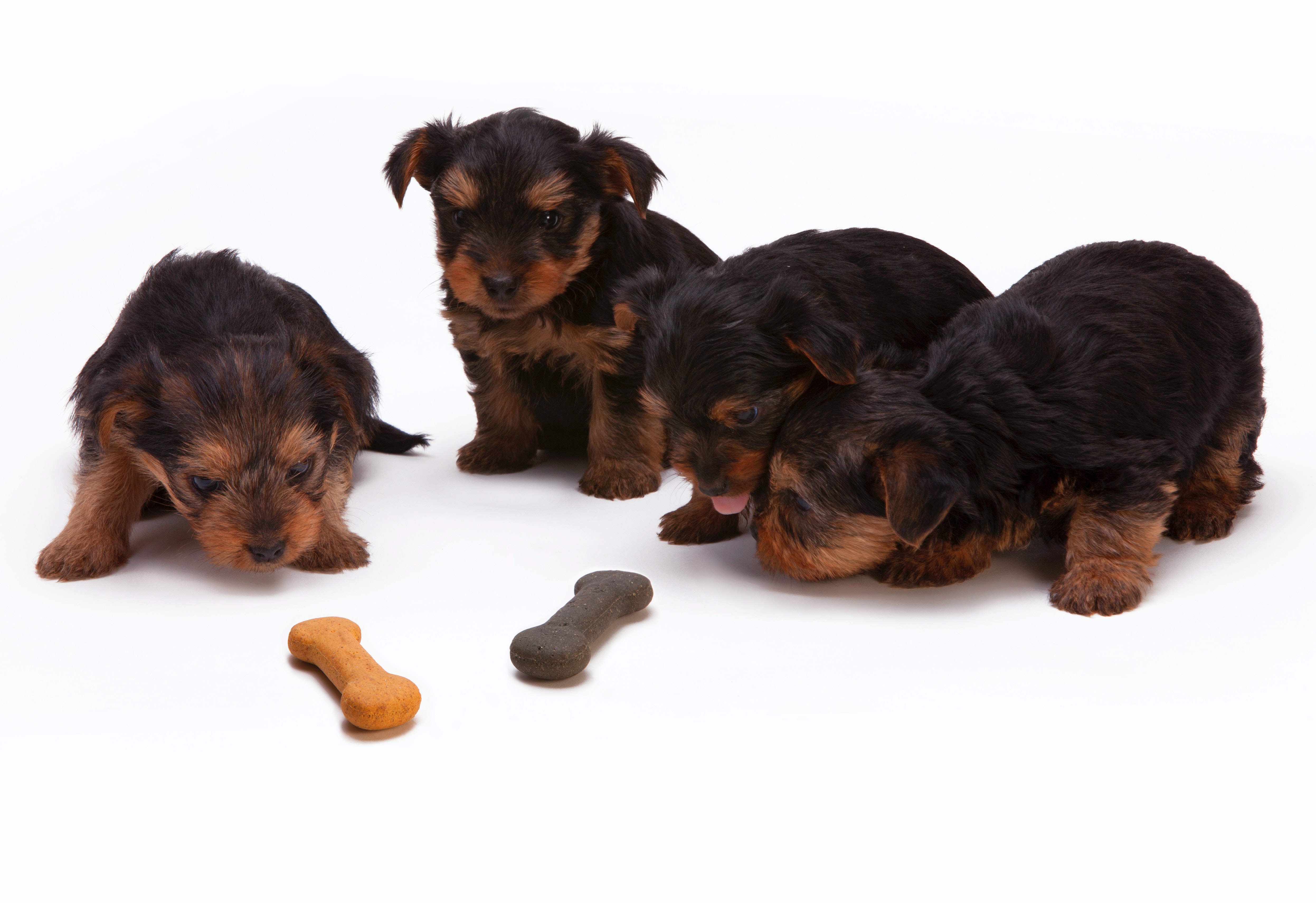
Chihuahua puppies need a balance of proteins, carbohydrates, and fats for optimal growth and development. There are a lot of options out there, so picking the best food for your Chihuahua puppy could be challenging. To assist you with this issue, we have compiled a list of recommended food options for feeding Chihuahua puppies, which includes:
👉Chicken
Growing Chihuahuas can benefit from the protein in chicken because it aids with muscular development and bone health.
👉Salmon
Omega-3 fatty acids, which may be found in abundance in salmon, have been shown to boost cognitive function and reduce inflammation in puppies.
👉Turkey
Turkey contains vitamins, minerals, and high-quality proteins essential for the growth and development of Chihuahua puppies. It also provides good energy levels while being easy to digest.
👉Sweet Potatoes
Not only are sweet potatoes rich in antioxidants, but they also contain dietary fiber, which can benefit puppy digestion and help with weight management.
👉Carrots
Carrots provide a tasty snack loaded with vitamins, minerals, and other nutrients essential for healthy growth in Chihuahua puppies.
👉Yogurt
Yogurt can help puppies get essential probiotics for healthier digestion and provide calcium for developing bones and teeth.
👉Oats
Oats contain plenty of dietary fiber to keep puppies feeling full throughout the day while providing B vitamins and iron to support their overall well-being.
👉Apples
Apples offer plenty of antioxidants, vitamins A & C, and dietary fiber, which helps keep puppies’ digestive systems regular while providing necessary nutrition for healthy growth and development.
Diet-Related Health Problems in Chihuahua Puppies
As a proud Chihuahua puppy parent, you want the best for your furry little friend. You’re committed to their well-being, from providing love and attention to ensuring they get plenty of exercise. Unfortunately, Chihuahua puppies often suffer from diet-related health problems, but you can prevent these issues with the right information and care.
🔵Hypoglycemia
Hypoglycemia is when your pet has abnormally low blood sugar. While hypoglycemia can affect any breed of dog, it’s widespread in chihuahuas due to its small size. Skipping meals, feeding your dog sparingly, over-exercising, and stress can all lead to hypoglycemia. Symptoms of hypoglycemia include lethargy, weakness, trembling, seizures, and even coma. It can be fatal if not addressed, so it’s crucial to ensure your Chihuahua receives enough food throughout the day.
🔵Digestive Problems
Chihuahua puppies are prone to digestive problems, including diarrhea, vomiting, and inflammatory bowel disease. Various factors, including dietary intolerance or sensitivity, feeding too much too quickly, or feeding table scraps, can cause these problems. Prevent digestive issues by feeding your puppy small, frequent meals and selecting a balanced, high-quality dog food that meets their nutritional needs.
🔵Obesity
Chihuahuas are also prone to obesity due to their small size and high-calorie diets; they only need a few extra calories each day to become overweight. Obesity raises the chance of additional health concerns such as diabetes, heart disease, and joint pain, so keep a constant eye on your dog’s weight and change their diet as needed. Exercise is also key; just 15 minutes a day of walking can help keep your pup at a healthy weight.
🔵Dental Disease
Dental disease is another common problem faced by chihuahuas; plaque buildup on teeth can lead to tartar buildup, which can cause infections if left untreated. To prevent dental disease from developing in your pet, you should brush their teeth regularly with a toothbrush specifically designed for dogs (never use human toothpaste!). You should also feed them food that helps clean the teeth; dry kibble works best for this purpose because it scrubs away plaque as the pup chews it up!
Common Feeding Mistakes to Avoid in Chihuahua Puppies

Pet parents make common mistakes that can negatively impact their health and development when feeding their Chihuahua puppy. Here are a few feeding mistakes to avoid:
📌Overfeeding
Chihuahua puppies have small stomachs and can easily overeat, leading to obesity and other health problems. Be sure to follow your veterinarian’s recommended portion sizes and feed your puppy several small meals throughout the day instead of one large meal.
📌Feeding Table Scraps
Feeding table scraps can disrupt your puppy’s balanced diet and lead to digestive problems. Stick to a portion of balanced dog food that meets their nutritional needs, and avoid feeding human food as treats.
📌Feeding the Wrong Type of Food
Not all dog foods are made equal, and some may not match the nutritional demands of your puppy. Choose high-quality puppy food appropriate for their age, size, and breed.
📌Feeding at Irregular Times
Establishing a regular feeding schedule can help regulate your puppy’s digestion and metabolism. It’s best to stick to a schedule so that the puppies become accustomed to eating at regular times of the day.
📌Not Considering Health Conditions
If your Chihuahua puppy has a health condition, such as allergies or a sensitive stomach, their diet may need to be adjusted. Consult your veterinarian to identify the appropriate food for your puppy’s specific requirements.
📌Not Measuring Food Portions
Chihuahua puppies have small stomachs, so it is vital to measure their food portions accurately to avoid overfeeding or underfeeding.
📌Not Switching to Adult Food at the Right Time
Chihuahua puppies need to change to adult food when they reach their full size and maturity, usually around 12 months old.
📌Feeding Human Food
Human food is not formulated to meet a dog’s specific nutritional needs and can cause imbalances in its diet. Furthermore, certain human foods, such as chocolate, raisins, onions, garlic, and avocado, can be toxic to dogs.
Frequently Asked Questions
Q. Can I free-feed my Chihuahua puppy?
Generally, Chihuahua puppies should not be free-fed. This is because puppies often have a high appetite and a fast-growing metabolism. Maintaining a consistent feeding schedule is the best way to ensure your puppy gets the nutrition it needs. If you do free-feed, keep an eye on your pet’s weight and adjust as needed.
Q. How to introduce a new food to Chihuahua puppies?
When introducing new foods to your chihuahua puppy, use these instructions as a starting point.
- Gradual transition: Introduce the new food by blending it with their current diet and gradually increasing the amount of the new food over 7-10 days.
- Offer small portions: Offer small portions of the new food to avoid upsetting their digestive system.
- Observe reactions: Observe the puppies’ reactions to the new food and adjust the portions accordingly. If they have digestive issues, stop feeding the new food and return to their old diet.
- Encourage eating: Encourage the puppies to eat by making mealtime a positive experience, such as by offering praise or small treats.
Q. Why is my Chihuahua not eating?
There could be several reasons a Chihuahua is not eating, such as dental problems, digestive issues, stress or anxiety, boredom with their food, or an underlying health condition. Consult a veterinarian if your Chihuahua consistently refuses to eat, which could signify a serious health problem. The veterinarian can help determine the cause and provide appropriate treatment.
Q. Is eating bones safe for Chihuahua puppies?
Eating bones can be dangerous for Chihuahua puppies as small bones can splinter and cause blockages or damage the digestive system. Additionally, bones can also break and cause damage to the mouth, throat, or teeth. It’s best only to give your Chihuahua puppy bones specifically made for chewing and monitor them while eating to ensure they are safe.
Q. What time of day would be ideal for me to feed my Chihuahua?
The morning and evening are the optimum times to feed your Chihuahua. These regular structured meals help keep their metabolism strong and also help create consistency within your household. If you need to adjust the meal schedule, remember to do it gradually and allow them plenty of time to get used to their new routine before introducing further changes.
Q. How long can a Chihuahua live without food?
The survival rate of Chihuahuas without food is tricky. Generally, it varies by age, body size, and general health. Healthy adult Chihuahuas with no other underlying health issues can survive for up to three weeks without food. Puppies younger than 3 months old can go on for about two weeks before needing more sustenance. A more senior Chihuahua may not fare as well; their success rate of surviving long-term without food significantly drops due to compromised health conditions or diseases that come with age.
Final Words
Feeding a Chihuahua puppy the right amount of food at the right intervals can be challenging. However, you can use some general guidelines as a starting point when establishing an optimal feeding schedule for them: take into account their age, size, and activity level when determining how frequently they should eat each day. Remember that it’s always best practice to consult a vet before making significant changes in diet or feeding habits!
Here at ILoveChihuahua, we share our personal experiences as owners of this feisty breed. We talk about recommended methods, dog supplies picks, and advice on common Chihuahua problems. Our goal is to promote responsible dog ownership, so there would be fewer Chihuahuas in shelters.

